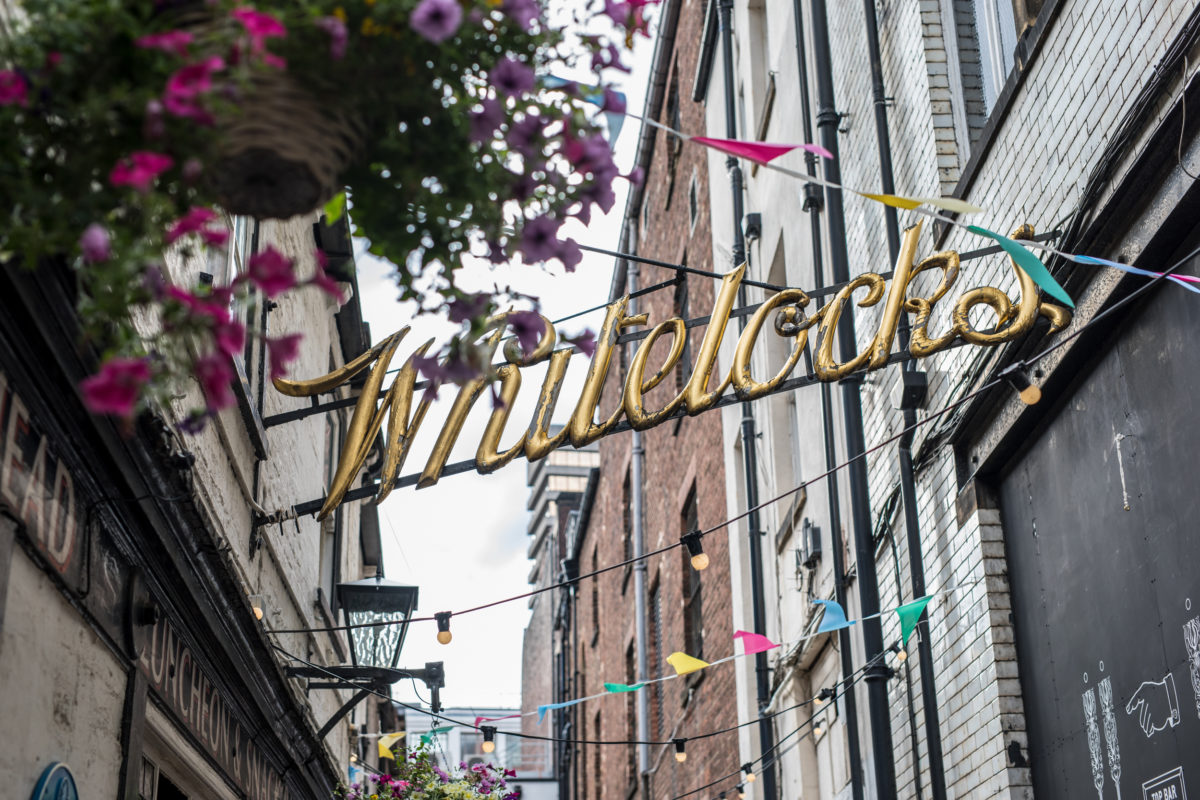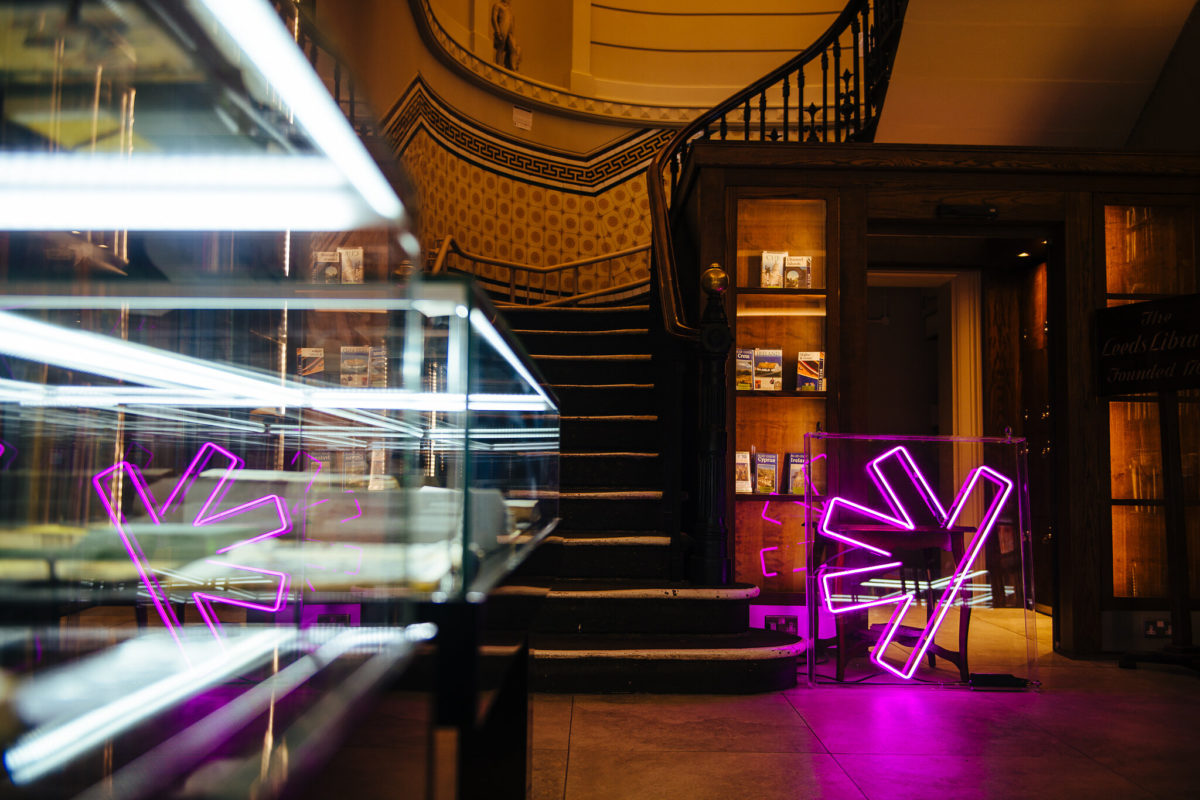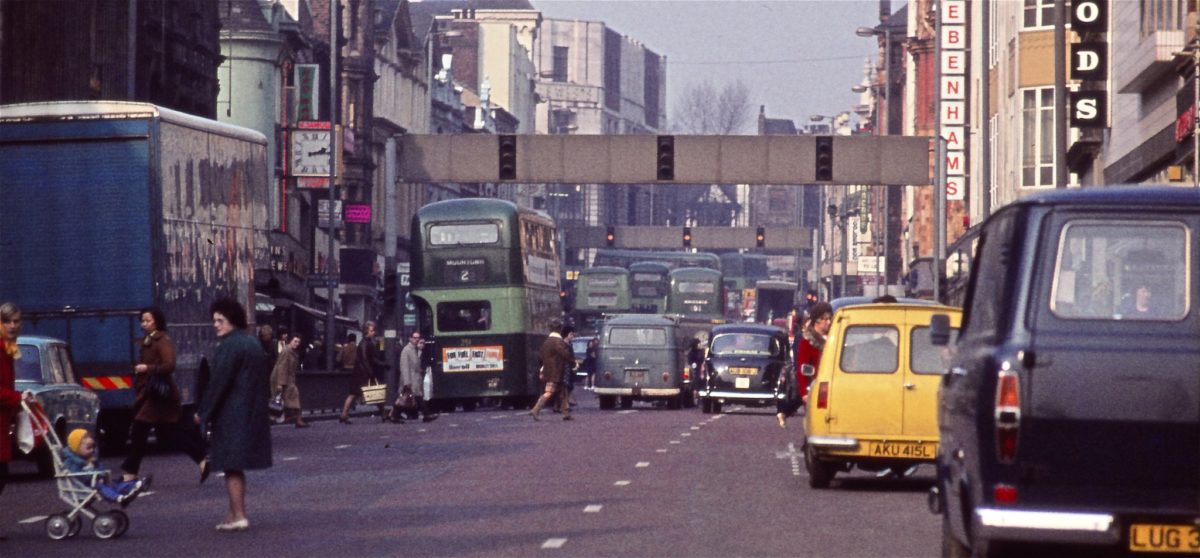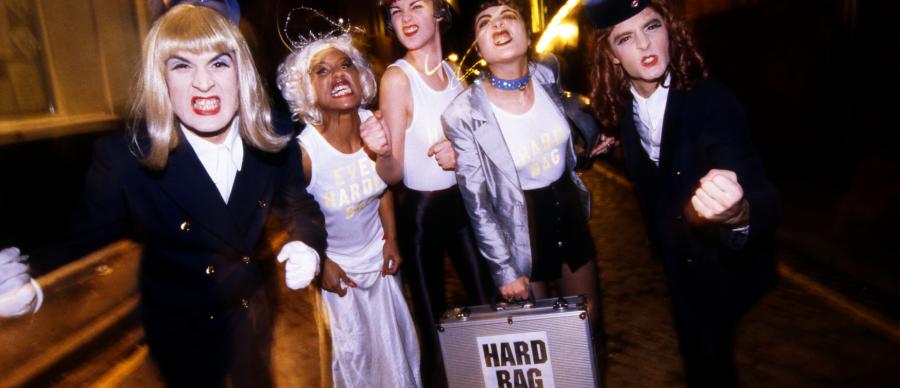January 3, 2020
Leeds 2010-2020


Leeds has changed.
The past decade has seen Leeds become an amazing place to be, from pioneering food openings to modern living to amazing jobs courtesy of innovative startups and big business.
It’s an astounding city to call home, and yet it still somehow slinks below the radar – in a recent review of Kirkgate market’s The Owl, Guardian food critic Grace Dent professed that “Leeds is currently hiding in plain sight as Britain’s best city” – and we fully agree.
Although Chapter 81 is only just over a year old, it is manned by passionate Leeds lovers, almost all of which have known Leeds and its suburbs and seen their transformation over the past ten years. So, with the new decade just arrived, we thought we’d look back at how the city has changed (with our usual foodie emphasis, natch) – on Leeds 2010-2020.
The food scene pre-2010 in Leeds was quiet; although one name stood out – Anthony’s. With Anthony’s, and then Piazza by Anthony and Anthony’s Patisserie, the brand was well-beloved in Leeds. The move to the Corn Exchange spelt disaster for all involved, though, as Anthony’s folded and the Corn Exchange took many years to get back onto its feet. Pool Court was another big foodie name in Leeds pre-2010, having moved to 42 the Calls in 2000, as was No.3 York Place – but none of these three survived the major overhaul Leeds underwent as the city centre was rewritten.
The city centre stalwarts that weathered this transition include some of our indie favourites. The Reliance opened in 2001, whilst Arts Cafe, Fuji Hero and North Bar have all racked up more than two decades since opening. Even more impressive? Bibi’s, San Carlo and Salvo’s, who are all continuing to keep Loiners happy after more than forty years!
Old School: 1970s-1990s
These pictures by Eric Miles show a Leeds that’s almost unrecognisable to those under 30. Pollution-blackened Kirkgate looks dark and looming, and many of the now-pedestrianised roads in the centre were solid with traffic.
In 1974 Leeds institutions Bibi’s and San Carlo both opened, which remain open serving happy Leeds customers to this day. In 1976 Leeds added to its complement of Italian restaurants with Salvo’s, too.
1990s
Leeds United were champs, and Leeds (or more rightly, music maven Dave Beer and his clubnight Back To Basics) wrote Leeds into music history as the capital of House music, overhauling the nightlife scene for a whole generation of Loiners. Alongside House there was artclub night Vague (which turned into Speedqueen in 1997), courtesy of terrifying host Madam JoJo (her door policy was second-to-none). The welcome of the Arthouse scene was renowned – although getting through the door was fearsome, this was a place of welcome for all. The pioneering, LGBTQ+-led scene was loud and fabulous here, and all-embracing. As well as the nightclub scene, plenty of up-and-coming names kicked off with a gig at renowned Leeds pub The Duchess of York – hosting massive names from Nirvana to Oasis to Radiohead.
On Call Lane, Arts Cafe opened, as did Fuji Hero and local beerheads North Bar. The 90s also saw the opening of French-inspired dining Sous le Nez en Ville in 1991.
2000s
The 2000s saw a period of quiet in Leeds, before the current boom. Leeds of the millennium was a different place from what we know 20 years on – without an arena, without Trinity Leeds shopping centre and without Victoria Gate, amongst many other features.
Although the 2000s saw the birth of Leeds foodie legends The Reliance and Sukhothai, 2005 saw the city lose its only Michelin Star when Pool Court closed. It’d take Michael O’Hare’s Man Behind the Curtain to win back a shining star for the city’s culinary scene.
2007 saw the Corn Exchange struggling, after Anthony’s had moved all of its thriving businesses into the foodcourt downstairs – and it didn’t work out. By June 2008 they had closed their doors, leaving many Corn Exchange units empty. It took awhile for the Corn Exchange to return to being a hub for independents. 2008 saw Victoria Gate enter the first stages of planning, and it is this shopping centre, adding to the historic arcades and the Trinity, which has made Leeds into the shopping hub it is today. Leeds is known for its amazing craft breweries now, too, but during the 2000s it pretty much only had The Tetley – North Brew Co was yet to be born of North Bar, and Northern Monk et al were still to come.
2010s
2010 saw Leeds’ furniture maker Thomas Chippendale top the records for selling Britain’s most expensive piece of furniture ever. Sotheby’s sold the Harrington Commode for £3.8 million in 2010. Both Manjit’s Kitchen and Fish& opened in 2010, and Laynes opened in 2011.
Tragedy struck in 2011 when ex-Leeds player, manager of Wales football team Gary Speed lost his life to suicide, leaving his wife Louise and young family. This unheralded and shocking event began to lift the stigma around sportsplayers and suicide; a taboo which is improving every year but is still a black cloud under which many suffer silently.
2012 saw the announcement of major rail improvements HS2 (which remain controversial to this day, as plans intend to disrupt ancient woodland and focus on connecting Leeds to London). Less controversial was the opening of Red’s BBQ also in 2012 – the only British barbecue restaurant to compete in Houston’s prestigious world BBQ championships (they ranked an impressive 22nd out of 144 entrants – mostly schooled in the US passion for barbecue).
In 2013 Friends of Ham opened, as did the Trinity shopping centre and thus Trinity Kitchen, bringing a whole host of ever-changing indie pop-ups together under one roof. 2013 also saw Anthony’s close all four of its concepts – the pioneering food haven which was before its time in culinary creativity. London foodie group D&D (behind Angelica’s, Issho, East 59th and Crafthouse) arrived in Leeds in 2013, alongside the transformation of Tetley’s from down-at-heel brewery to cool art and food space. and music-and-vibes venue Belgrave Music Hall opened too, bringing inhouse foodies Dough Boys and Patty Smith to the Leeds food stage as well as providing a launchpad for semi-permanent venues – Bundobust started out with a stall at Belgrave.
2013 also saw Leeds City Council invest £12 million in the future of Kirkgate Market, with extensive and ambitious regeneration plans.
In 2014, nightlife took a hit as old Leeds haunts Cockpit and Majestyk came to the end of their natural life spans (grade II-listed Majestyk suffered a devastating fire whilst Cockpit simply shut its doors for the last time). The year saw an amazing resurgence of enthusiasm for the humble bike, though, as the city centre was proud to host the Tour de France’s kick off, welcoming 2.5 million cycle fans. Leeds also reclaimed her Michelin kudos this year, with Michael O’Hare’s exciting, innovative and ambitious restaurant reaping the well-deserved rewards of its labour. Pioneering on a different scale, Leeds’ favourite Gujarati food and craft beer emporium Bundobust opened, on quiet and rundown Mill Hill. Bundobust has gone on to launch three more venues across the North.
Mid-decade: 2015
Saw yours truly (under our previous guise, I Like Press) join forces with some other passionate foodies to bring Leeds Indie Food festival to the city. Capitalising on the city’s passion for pop-ups, Leeds Indie Food brought two weeks of foodie celebration to the heart of Leeds through May, and continued to do so for five more years – the past two under our guiding hand alone as other founders found the process too time-intensive. The year also saw indie favourites Belgrave open another venue, with a similar grand scale and focus on eating, drinking and being merry – Headrow House.
2016 saw the culmination of years’ worth of work and £165 million investment, at the grand unveiling of Victoria Leeds. We also saw the opening of the Futuristic gold South Entrance to the Leeds Train Station, by Granary Wharf, and a modernisation to the city’s oldest pub Whitelock’s, as the owners opened its sibling The Turk’s Head alongside it – the first new pub in this alley for a century.
In 2017 Leeds’ Chapeltown West Indian Carnival turned 50 years old, making it both the oldest West Indian Carnival in the UK and in Europe, too! The year also saw fine dining spot HOME open, as well as modern Chinese venue Tattu. The year also saw the first iteration of the citywide Leeds International Festival, a celebration of diversity, innovation and excitement which brought speakers and events from near and far across multiple industries to Leeds city centre. The festival has happened every year since, and the 2020 theme will be Generation Future.
In 2018 we saw North Brewing Co. open a city centre taproom on Sovereign Street, as well as sustainable foodies OWT opening in Kirkgate and pop-up hub Assembly Underground opening in the haunt of old venue Carpe Diem. Much-lauded Matt Healy x The Foundry opened up in Holbeck, too. This was perhaps the first year we saw a serious focus on sustainability in the city, as Jar Tree and Ecotopia opened their doors to support eco-friendly shopping habits.
2019 saw HOME founders Liz Cottam and Mark Owens open up the first gastropub in Kirkgate Market – The Owl – as well as British-inspired homemade pasta hounds Sarto throw open their doors. Roundhay Park once again acted as the host for a mammoth gig, as 150,000 Ed Sheeran fans gathered for two nights in August. West Yorkshire Playhouse was also rebranded as Leeds Playhouse and opened its mammoth modern new entryway.
 Whitelock's 150 years on
Whitelock's 150 years on
 Leeds International Festival
Leeds International Festival
 The Owl in Kirkgate Market
The Owl in Kirkgate Market
 Sarto opens
Sarto opens
2020? We’re hoping to see the redevelopment plans for the UK’s last gaslit cinema Hyde Park Picture House come to fruition, the ongoing development of the major sustainable housing project by CITU down by Leeds Dock, and several more projects for some old Leeds favourites, from a Bundobust brewery site in Manchester to several added foodie hubs in Kirkgate market from The Owl’s owners. Brexit may take shape at some point (though who knows, since nothing’s happened yet!) and many of the indies who have weathered the ongoing storms of austerity will go on fighting, whilst others will cave to the intense pressure of the climate. What will happen to the city’s beloved Corn Exchange? The Grand Theatre, undergoing its transformation, will hopefully reach completion this year…there’s just so much excitement and evolution at play in Leeds today.
We look forward with anticipation to the roaring twenty twenties – let’s hope for a decade of development, sustainability and gastronomic goodness – as well as a large helping of kindness and equality for and from the inhabitants of this great city. Cheers, Leeds. To the Twenties!














